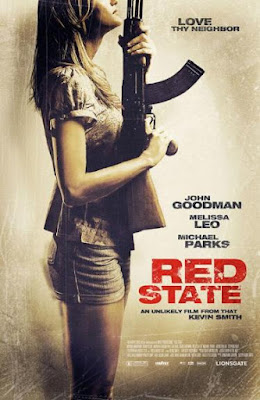The wonderful project Atomic Platters documents how the spectre of nuclear annihilation influenced American popular music in the fifties. From the frivolous to the apocalyptic, a great many artists dealt with the advent of the atomic age. In retrospect, a lot of those, er, contributions look rather naff. They're all pretty revealing, though. Here, I thought I'd discuss two entries into the genre - one terrifying, one hilarious. (Both, by sheer coincidence, are among my favourite songs.)
'The Great Atomic Power' by the Louvin Brothers sums up that act so well that it's no surprise Nathan Rabin chose the song as his introduction. Raised in poverty in Appalachia, Charlie and Ira Louvin were making self-consciously traditional country music in the increasingly pop-oriented market of the 1950s. But they were unusual in another sense, too: where pop stuck to love songs, their lyrics were marked by a harsh and unyielding backwoods fundamentalism that regularly threatened non-believers with the prospect of hell.
Do you fear this man's inventionSo far, so good. It isn't cheery, but neither is the nuclear winter.
That they call atomic power?
Are we all in great confusion
Do we know the time or hour
When a terrible explosion
May rain down upon our land
Leaving horrible destruction
Blotting out the works of man?
Are you ready for the great atomic power?Here the prospect of atomic war is conflated with the second coming of Christ. For pre-millenial dispensationalists like the Louvins, Christ's people will be spared the horrors of nuclear obliteration by being spirited away in the Rapture ('we... shall be caught up together with them in the clouds, to meet the Lord in the air: and so shall we ever be with the Lord', 1 Thess. 4:17). Applying religious imagery to the atomic bomb is common, of course, from Robert Oppenheimer's 'Now I am become Death, the destroyer of worlds' to Dr. Strangelove's Doomsday Machine. What interests me about the Louvin Brothers is that their identification of Judgment Day with the nuclear apocalypse is literal.
Will you rise and meet your Saviour in the air?
Will you shout or will you cry
When the fire rains from on high?
Are you ready for that great atomic power?
There is one way to escape itYes, that's the song's message: the ICBMs might start raining down any time, and if you don't fancy dying of radiation sickness in a post-apocalyptic wasteland you'd best believe in Jesus. I'm not sure how effective this is as an evangelistic strategy. It might get some people to convert out of fear; but in the long term few might be able to bear a God who is both author of and saviour from atomic destruction.
Be prepared to meet the Lord
Give your heart and soul to Jesus
He will be your shielding sword
He will surely stand beside you
And you'll never taste of death
For your soul will fly to safety
And eternal peace and rest
There's an army who can conquerHere the mashup of secular warfare and apocalyptic destruction becomes confusing, perhaps deliberately so. In the context of the arms race, 'the enemy' is the Soviet Union; but the term itself is a New Testament euphemism for the devil. The militarisation of Christianity results in an apparent inability or unwillingness to distinguish between the cause of Christ and that of the United States.
All the enemy's great band
It's a regiment of Christians
Guided by the Saviour's hand
When the mushroom of destruction
Falls in all its fury great
God will surely save His children
From that awful awful fate
(Applying military discipline to Christians is of course hardly foreign to the Louvin Brothers' fundamentalism. In 'Broadminded', they opine that 'that word broadminded is spelt s-i-n' and lambaste their fellow Christians for indulging in seemingly harmless pleasures like occasional drinking, gambling and dancing, long-standing fundamentalist bugbears all.)
But there's something else going on. Like a lot of the Louvin Brothers' songs, 'The Great Atomic Power' is uptempo and sounds downright cheerful. Behind the vicious apocalyptic detail of the description, there is a certain glee. Such language, as Jacqueline Rose notes, 'is rooted... in a fear; but it also thrives on the prospect of annihilation'. That prospect does away with pesky doubts and moral ambiguities. It allows for a stark message: turn, the brothers preach, or burn.
Tom Lehrer's 'We Will All Go Together When We Go' goes a different route, satirically pointing out that the highest technological development of humankind has bred the danger of total annihilation: 'universal bereavement and inspiring achievement'. The humour comes from the cheerful treatment of human extinction.
Lehrer, too, regularly mixes religious language with that of the atomic age: 'when it's time for the fallout and St. Peter calls us all out', 'just sing out a Te Deum when you see that ICBM'. A sceptic, Lehrer has none of the brutal earnestness with which the Louvins approach the topic. But it's only natural our notions of all-out atomic war should be shaped by end-times fears, and vice versa. The unprecedented possibility raised by nuclear weapons - the sudden end of all human life on earth - was too large and frightening to be easily accommodated into comfortable public discourse. It always had to break those bounds and take on theological dimensions.



